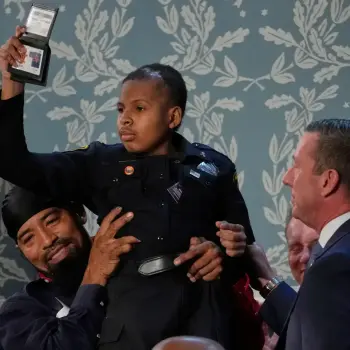These are the units to measure the worth,
Of this woman as a woman regardless of birth.
Not what was her station? But had she a heart?
How did she play her God-given part?
These words, inspired by “The Measure of a Man” by Albert Schweitzer, are carved into the path in front of a statue of Princess Diana unveiled by her sons yesterday. William and Harry wanted it to “recognize her positive impact in the UK and around the world, and help future generations understand the significance of her place in history.”
They unveiled the sculpture on what would have been their mother’s sixtieth birthday. It depicts Princess Diana standing with her hands on the shoulders of a boy and a girl, reminding us of her advocacy for children.
Princess Diana was a patron of over one hundred charities. She led a campaign for a global ban on landmines, changed the world’s perception of HIV and AIDS patients, touched lepers to remove the stigma surrounding their disease, and visited London’s homeless shelters regularly.
She said of her work with the Royal Brompton Hospital in London, “I make the trips at least three times a week and spend up to four hours at a time with patients, holding their hands and talking to them. Some of them will live and some of them will die, but they all need to be loved while they are here. I try to be there for them.”
When people see what we do, they draw conclusions about who we are.
A secular historian tells how Christians changed the world
As Americans prepare to celebrate our nation’s birthday this Sunday, one of the best ways American Christians can honor our country is by being the change we wish to see.
In Dominion: How the Christian Revolution Remade the World, secular historian Tom Holland brilliantly tells the Judeo-Christian story from its beginnings to contemporary society. Reading his well-crafted narrative, I was impressed by the impact early Christians made on the world we have inherited.
For example, in a culture that denigrated women and slaves as possessions of men to be used sexually and in other demeaning ways, Paul and his fellow missionaries proclaimed that “there is neither Jew nor Greek, there is neither slave nor free, there is no male and female, for you are all one in Christ Jesus” (Galatians 3:28).
In a world where unwanted children were abandoned, especially girls, many of whom died or became slaves or prostitutes, Christians rescued them and raised them as their own. Many rejected slavery as an unpardonable offense against God. Wealthy believers sold their possessions to aid the poor. Christians were the first to build what we know as hospitals.
According to Holland, they did this because “divine love for the outcast and derelict demanded that mortals love them too.”
“Thoroughly and proudly Christian”
Holland is not naïve or simplistic in his narrative. In his conclusion, he notes that some Christians across our history “have put the weak in their shadow, they have brought suffering, and persecution, and slavery in their wake.”
Then he adds, “Yet the standards by which they stand condemned for this are themselves Christian.”
In an article on the same subject titled “Why I was wrong about Christianity,” Holland wrote: “Today, even as belief in God fades across the West, the countries that were once collectively known as Christendom continue to bear the stamp of the two-millennia-old revolution that Christianity represents. It is the principal reason why, by and large, most of us who live in post-Christian societies still take for granted that it is nobler to suffer than to inflict suffering. It is why we generally assume that every human life is of equal value.”
He concludes: “In my morals and ethics, I have learned to accept that I am not Greek or Roman at all, but thoroughly and proudly Christian.”
“There is no heaven with a little of hell in it”
As our nation’s birthday approaches, I want to urge us to give our country the best gift we can offer her people: lives that demonstrate the character of Jesus. What he did through early Christians to transform the world, he wants to do today through you and me.
To that end, let’s renew our commitment to “put on the Lord Jesus Christ, and make no provision for the flesh, to gratify its desires” (Romans 13:14). Let’s answer Paul’s call: “Whatever is true, whatever is honorable, whatever is just, whatever is pure, whatever is lovely, whatever is commendable, if there is any excellence, if there is anything worthy of praise, think about these things” (Philippians 4:8).
Let’s settle for nothing less than the unconditional transformation Jesus intends for our lives (John 10:10). As George MacDonald noted, “There is no heaven with a little of hell in it.” Being better than some is not good enough. Being religious in the eyes of others is not good enough. Our culture needs to see what Jesus can truly do with those who are truly his.
As we seek to be our best for our Master and our nation, let us do so for his glory and never our own. Our daily resolve should be “He must increase, but I must decrease” (John 3:30).
A good friend and I were discussing the importance of humility yesterday and he shared with me his daily prayer: “Let your light shine through me, not on me.”
Let’s make his prayer ours today.











